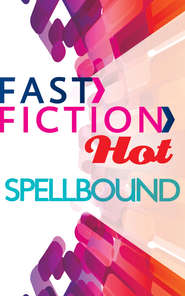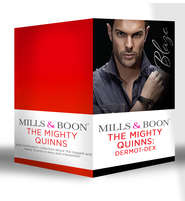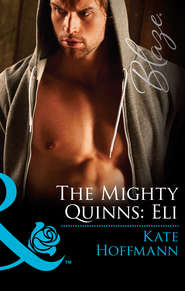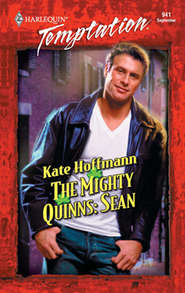По всем вопросам обращайтесь на: info@litportal.ru
(©) 2003-2024.
✖
Reunited
Автор
Год написания книги
2018
Настройки чтения
Размер шрифта
Высота строк
Поля
A BRISK WIND buffeted the spot where Keely McClain stood. She turned into the breeze and inhaled the salttinged air. Far below her, the sea crashed against jagged rocks at the base of the cliff. Above her, clouds scudded across the sky, casting shadows on the hills around her. A memory from her childhood flashed in her mind as she recalled the fairy tale she once scribbled in her journal, the fanciful story of how her parents had met on a storm-tossed sea.
She tipped her face into the breeze, bathing in the mysterious spell that Ireland had cast. Time and time again, she’d felt this odd sense, a sense of belonging to this place she’d never seen before. This was land that had nurtured her mother and father, green and lush, colored by an unearthly light that made everyday scenery look magical. She could almost believe in leprechauns and gnomes and trolls, and all the other fairy creatures that populated this island.
Keely turned away from the sea and stared at the stone circle she’d come to find. It had been clearly marked on the road map, and though she’d been anxious to arrive in the small town that had once been her mother’s home, she had decided to take a short detour.
She’d followed a narrow country lane off the highway, steering the rental car beneath arching fuchsia bushes and between drystone fences. And then, when the sky had reappeared, she found herself in yet another breathtaking spot, a wide field above the sea where cows lazily grazed. Closer to the cliff’s edge, a stone circle sat silently in the dappled sunlight, a monument to Ireland’s pagan past.
Back home in New York City, she had barely given a second thought to her surroundings, the scraggly trees or patches of trampled grass, the brick buildings that lined her street in the East Village. But here, the world was so incredibly beautiful that it begged to be noticed. She took one last long look, committing the sights and sounds and smells to memory, then hiked back to her car.
She hadn’t intended to come to Ireland. She’d been in London, presenting a seminar with a famous French pastry chef and teaching new techniques for marzipan modeling. Since she’d taken over the bakery from Anya and her mother, she’d become known as one of the most talented cake designers on the East Coast, creating bold and original confections for a wide variety of special events.
She’d been so busy with work that she’d never been able to justify a vacation, so she’d decided on a working vacation. Between seminars, she’d seen a few musicals in the West End, searched antique stalls at the Portobello market for the old pastry molds she collected, and visited all the popular tourist sights.
But impulse drew her away from the bustle of the city, compelled her to hop a train that wound across England and Wales to the Irish Channel and to board a ferry that crossed choppy water to a town with the quaint name of Rosslare. Yesterday, from the deck of the ferry, she’d caught her first glimpse of Ireland and, at that moment, felt something deep inside her soul shift, as if she had suddenly discovered a facet of herself that had been hidden until this moment.
She was no longer just a New Yorker, or an American. This land was in her blood, part of her heritage, and she could feel it with every beat of her heart. Keely smiled to herself as she pulled the car door open. Though she’d been forced to drive in the wrong side of the car and on the wrong side of the road, she was getting better at navigating the country roads and narrow streets of the villages that she passed through. She nearly felt at home here.
A gentle rain began to fall and Keely ran to the car. She carefully turned around and started back down the lane, anxious to arrive in the little village she’d marked on the map. Ballykirk was only a few miles down the road, but as she came closer, her nerves got the better of her. She hadn’t told her mother she’d decided to go to Ireland, or come to County Cork. She knew the idea would be strongly discouraged. But her mother had never given her a decent reason for her feelings and this was one impulse that couldn’t be ignored. Besides, it had been a long time since she’d done anything to please her mother. She didn’t dress properly, she didn’t behave properly. And now, she didn’t travel properly either.
“The past is in the past and it’s best if it stays there,” Fiona would have said.
As Keely had grown older, she’d asked more questions about her parents’ past. And the more questions she’d asked, the more her mother had refused to speak—about her father, about Ireland, about relatives Keely had never known. “That was another life,” she’d say. But Keely had remembered one bit of information: Ballykirk, her mother’s birthplace in County Cork. A tiny village on the southwest coast, near Bantry Bay.
“So I’ll find out for myself.” Keely scanned the roadside for the landmarks on the hand-drawn map. She’d found the name in a phone book at the market in a nearby town. Quinn, her mother’s maiden name. Maeve Quinn was the only Quinn in Ballykirk and when she’d asked the elderly clerk whether Maeve Quinn was related to the Fiona Quinn who married Seamus McClain about twenty-five years ago, he gave her a puzzled frown, scratched his head, then shrugged. “Maeve would know,” he murmured as he scribbled a map to Maeve’s home.
She found the place exactly where the clerk had said it would be. The tiny whitewashed cottage was set close to the road, a rose arbor arched over the front gate serving as a landmark. Keely could tell that the home had stood in the same spot for many years. An overgrown garden, filled with a riotous mix of wild-flowers, filled the yard and nearly obscured the cobblestone walk to the front door. Had her mother lived here once, picked flowers in the garden, played hopscotch on the walk? Had she passed her father’s home or was it just over the next hill on the road?
Keely sat in the car, her mind forming images of her mother as a child—racing out of the front door to play, weaving a garland of daisies for her head, chasing butterflies down the narrow lane. With a soft sigh, she stepped out of the car, anxious to get a closer look.
As she approached the stone fence that surrounded the cottage, the front door opened. Keely hesitated, then decided to explain herself to Maeve Quinn and hope for news of her family.
The slender elderly woman with hair the color of snow was dressed in a brightly flowered dress. She held her hand out to the rain, then waved. “Come in, come in, dear,” she called, motioning to Keely. “Jimmy rang me from the market and told me you were on your way. Don’t make me wait a minute longer to meet you.”
Keely reached for the latch on the gate, unwilling to refuse such a friendly invitation. “I don’t mean to disturb you,” she said. “I’m Keely Mc—”
“I know exactly who you are,” the woman said, her Irish accent thick in each word. “You are Fiona and Seamus’s girl. You’re family, that you are, come all the way from across the ocean. And I won’t miss a chance to share a cup of tea with a relative.” She held out her hand and it trembled slightly. “I’m Maeve Quinn. I suppose I would be your cousin then. At least I’m cousin to your father Seamus. So what would that make us?” She waved her hand. “Oh, never mind. It makes no difference at all, does it?”
Keely hesitated. Surely the woman had misspoke. Maeve was a Quinn. She would have been related to Keely’s mother, not her father. Maybe she wasn’t a relative at all. “I think you must be mistaken,” Keely said. “My mother was Fiona Quinn.”
“Yes, yes,” Maeve said. “And she married my cousin, Seamus Quinn. She was a McClain, as I recall. From the McClains that lived down Topsall Road in that big house. Yes, that was it. Topsall Road.” Maeve smiled, her eyes lighting up. “She was the prettiest girl in the village and from a fine family. I was there at their wedding. And how is Fiona? Since her parents passed years back, we haven’t heard a thing from her, or from Seamus, for that matter. But then you wouldn’t have remembered your grandparents. You must have been just a wee child when they died. Donal and Katherine, God rest their souls, treasured each other until the day death separated them. Donal couldn’t live without her and he died just a week after she did. Many say from a broken heart.”
“Donal and Katherine?” Keely slowly sat down on the chair she was offered, trying to digest all the information. Katherine was her middle name! But it had been over twenty-five years since her parents had left. It was no wonder the elderly lady got things mixed up, names and places.
“I’ll get tea,” she said, as she hurried out of the parlor into the rear of the cottage. “I have the pot on right now.”
Keely glanced around the tidy room, from the handmade lace doilies to the delicate crystal figurines, pretty landscape paintings and embroidered pillows. Tiny reminders of her mother’s home were scattered around the room, knickknacks that she’d never known were of Irish origin. She reached out and picked up a delicate Belleek porcelain dish, examining the fine basketweave surface.
“Here we are,” Maeve chirped. “Tea and a bit of gur cake.” She set the tray down on the table in front of Keely and poured her a cup. “Milk or lemon?” she asked.
“Milk, please,” Keely said. She took the cup and saucer from Maeve, along with the thin slice of fruitcake tucked beside. She hesitated, then set the tea down in front of her. “There’s something I have to clear up,” she said. “It’s about my parents. My mother’s name was Fiona Quinn and my father’s name was Seamus McClain. Maybe it’s just a coincidence but—”
“Oh, no, dear. You must be confused.”
Keely sighed in exasperation. “I can’t be confused about my parents’ names. They’re my parents.”
Maeve frowned, then quickly stood. “Well, we’ll just have to sort this tangle out.” She crossed the room, opened a cabinet, and withdrew a leather-bound album. “Here,” she said, returning to Keely’s side. She sat down next to her and opened the album. “Here they are.”
Keely stared down at the picture. Her mother had never kept old photos around the house. She had never considered this odd until she’d grown older and asked about her long-dead father and her grandparents, suddenly anxious for any proof of their existence. There was even a time when she’d wondered if she’d been adopted or kidnapped by pirates or even left in a basket on the church…
Her gaze instantly froze on the pretty young woman standing near the sea. It was her mother, there was no doubt about that. She pointed to the photo. “That’s Fiona Quinn,” she said.
“Yes,” Maeve said. “And there’s your father, Seamus Quinn.”
“My—father?” Keely asked, her voice dying in her throat. She ran her fingers over the faded edges. “This is my father.”
“He was always a handsome devil,” the old woman said. “A favorite of all the girls in the village. But he only had eyes for your mother, and though her parents didn’t approve of the match, there was nothing that could stop them. I expect he still is quite dashing, though that black hair has surely turned to gray.”
Keely’s heart lurched and she felt the blood slowly drain from her brain. Her father was dead. Didn’t this woman know? He’d been gone for so many years, since just after she was born. Her mother had to have sent the news in a letter or at least made a phone call. Or maybe Maeve had simply forgotten her relatives so far away. Though the woman didn’t appear to be feebleminded, Keely decided to forgo the revelation about her father’s death. The last thing she wanted was her new cousin to collapse from a heart attack at learning the sad fate of Seamus McClain.
Instead, Keely continued to stare at the only image she’d ever seen of her father. He was handsome, with his dark hair and fine features. Had she passed him on the street in New York she would have turned for a second look. Now she had an image to fix in her mind, a face to put with her father’s name. “He is handsome,” Keely murmured.
“All the Quinn men were,” Maeve said. “And I do believe they knew it, too.”
“Here’s another photo taken that same day. I believe it was the day they left for America. Taken with the boys. I remember trying to get them all to stand still for a photo was nearly impossible.”
“The boys?” Keely asked, following Maeve’s finger to the next page of the album.
“And here they are again,” Maeve said, pointing to another photo.
Keely glanced down at the picture, the color images washed out by time. This time Fiona and Seamus were surrounded by five young boys of various ages and sizes. “Are these your children?” Keely asked.
Maeve laughed as she pulled the photo from the album. “Then you don’t recognize them? Why, these would be your brothers. Let me see if I remember correctly. The eldest was Conor. And then there was Brendan and Dylan, though I can’t remember which of those two comes first. I suppose they’re all grown and married now, with families of their own. And the twins. Now what were their names?” She turned the photo over. “I do believe your mother was pregnant.” She pointed to the swell beneath Fiona’s windblown dress. “That was probably you.”
Keely quickly pushed to her feet. This couldn’t be right. This wasn’t her family. This wasn’t her story. She didn’t have brothers. She was an only child! “I really should go,” she murmured. “I’ve already taken too much of your time.”
“But you haven’t touched your tea. Please stay and visit with me.”
“Perhaps I’ll come again tomorrow,” Keely said, desperate to find a moment to herself, a moment to think about what Maeve had told her.
“Well, here, then. Take this with you.” She handed Keely the photo, who reluctantly took it and tucked it in her purse before she hurried to the door.
“Tomorrow,” she said as she stepped outside into the soft rain that had begun to fall.
By the time she reached the car, her mind was spinning with confusion. She wanted to believe Maeve Quinn was a crazy old lady who couldn’t keep her facts straight. But every instinct told her that Maeve was in full possession of her faculties and she was the one who didn’t have the story right.
Keely numbly started the car and steered it down the road. But her head pounded and her stomach roiled. A wave of nausea overtook her and she slammed on the brakes and stumbled out of the car. Bracing her hands on the front bumper, she retched, her emotions overtaking her body. When her stomach finally settled, she took a ragged breath and pressed her palm to her forehead.
Damn it, why did this always happen to her! This was what she got for acting so impulsively. Yet she couldn’t be sorry she’d come. Ireland had revealed a past she’d never known, a past her mother had hidden from her for years. And if this wasn’t the truth, then she’d be damn sure she’d get the truth, either here or back in the States. On wobbly legs, she slipped back into the car.











